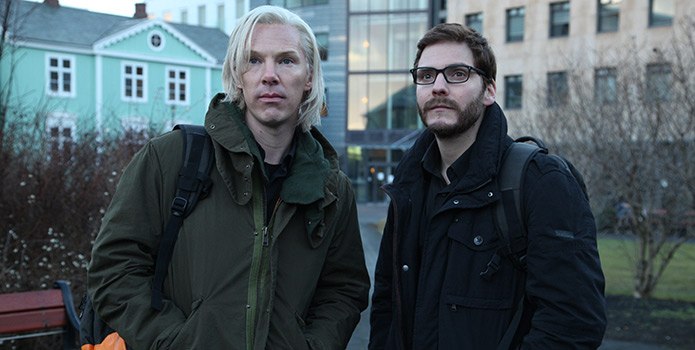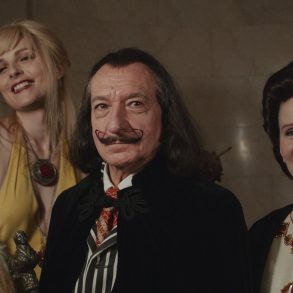Director: Bill Condon
Writer: Josh Singer (screenplay), Daniel Domscheit-Berg (book)
Actors: Benedict Cumberbatch, Daniel Bruhl, Carice van Houten
Runtime: 128 min
Rating: 14A
Few recent events fascinated the public more than the WikiLeaks controversy. A website that featured confidential documents exposed by anonymous whistleblowers, WikiLeaks came under fire when it released top-secret American government information that placed citizen lives at serious risk. Based on the non-fiction book Inside WikiLeaks: My Time with Julian Assange at the World’s Most Dangerous Website, by Daniel Domscheit-Berg, Director Bill Condon’s film The Fifth Estate offers a peek into the world of WikiLeaks from the perspective of one of the website’s principle conspirators.
The Fifth Estate tells the story leading up to the great event with which the public is familiar. Eager young idealist Daniel Berg (Daniel Bruhl) meets the twitchy, cocky, and undeniably brilliant WikiLeaks founder Julian Assange (Benedict Cumberbatch), and the two form a fast friendship and partnership. Daniel puts up with Julian’s quirks due to his wholehearted belief in the work they are doing, and begins to understand this misanthropic individual as details of his sordid past are gradually revealed. When Julian begins to release information recklessly, however, Daniel is forced to ask himself just how far he is willing to go to expose the truth.

As expected, both lead actors provide strong and engaging performances. Cumberbatch’s Julian fascinates even as he irritates, while Bruhl’s hard-working Daniel operates through a genuine desire to do good. Both of these actors are ones to watch at the moment, as each is enjoying and anticipating great success in various other projects including the recent Rush and the upcoming The Hobbit: The Desolation of Smaug. The cinematography in this film is also worthy of note, as Condon creates sequences that visually explain the workings of the complicated technology that the characters use in a way that a general audience can easily understand. Artistic sequences are scattered throughout, such as a reoccurring shot that features Daniel working alone amidst a sea of identical desks under a starry night sky. Shots such as this one express a feeling as opposed to narrative, and work well to convey the inner emotions of individuals who rarely portray them outright. In addition, the pounding music appearing throughout serves as a reminder of the currency of these events while reflecting the hectic and exciting tone of these characters’ lives.

One flaw within this film, however, lies in its lack of character focus. This weakness is due in no part to Cumberbatch or Bruhl, who have crafted complex characters that cannot help but intrigue, but that the audience never learns a lot about. By choosing to focus on events, many of which an audience are already aware, Condon misses an opportunity to build a real connection between his characters and his audience. We want to understand these real-life people about whom we’ve heard so much and to learn about their emotions and motivations, and a film based on a tell-all book written by one of the characters should provide a perfect opportunity. However, a few unfortunate details from Julian’s past prove insufficient to generate sympathy for this character. As for Daniel, we certainly want to like this idealistic young man, but cannot form a true connection with a character about which we know nothing. The result is a film that begins and ends well, but feels a bit long in the middle when world events take precedence over character emotions.
The Fifth Estate is a well-acted film featuring a fascinating, real-life story and unique cinematography. It is unfortunate that director Condon chose to place his focus on the events that we already know as opposed to revealing the shadowy individuals behind them. However, this film still generates interest due greatly to its strong cast, and can be enjoyed nonetheless.







